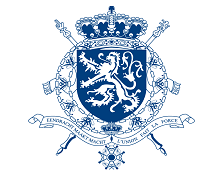- Details
- East Africa
- 668
Today, Belgium was informed of Rwanda’s decision to sever diplomatic relations with Belgium and to declare Belgian diplomats in Kigali persona non grata.
“Belgium regrets this decision, which is disproportionate and illustrates that when we disagree with Rwanda, it prefers to avoid dialogue,” said Deputy Prime Minister and Minister of Foreign Affairs Maxime Prévot.
“I invited my Rwandan counterpart, Minister Olivier Nduhungirehe, to meet me during his visit to Brussels last week, but he declined the meeting, despite an open offer to find a mutually convenient time. It appears that the Rwandan government has likely preferred to settle for a unilateral and biased interpretation of our position. However, cutting off channels of discussion never facilitates the resolution of disputes.”
Belgium refutes President Paul Kagame’s statements over the weekend, as well as the reasons invoked to justify Rwanda’s decision. Belgium does not seek to punish or weaken Rwanda, let alone based on a colonial past from which it has long distanced itself. This is a complete distortion of the facts.
“Belgium’s only guiding principle will remain the respect for human rights, the rule of law, and international humanitarian law,” said Minister Prévot. This position is shared by the entire EU as well as other international partners, including the G7. This demonstrates that it is not an isolated stance and that Belgium does not need to convince its allies.
Belgium’s position on the 1994 genocide against the Tutsi in Rwanda remains unchanged, and we reaffirm it. Belgium has unequivocally condemned the genocide against the Tutsi and has assumed its share of responsibility, including by formally apologizing for its shortcomings. Belgium remains committed to enforcing the law against genocide denial and will maintain strong judicial cooperation with Rwanda in prosecuting those responsible.
In response to the violation of the Democratic Republic of Congo’s territorial integrity and the ongoing violence in the east of the country, Belgium believes that a firm and unanimous response from the EU was necessary. This morning, the Council of the European Union adopted individual sanctions against senior Rwandan military officials as well as members of the M23 and AFC.
One individual and one Rwandan company were also sanctioned for their involvement in the illegal trafficking of natural resources from the Democratic Republic of Congo. It is likely that today’s decision by Rwanda is not unrelated to the unanimous adoption of these sanctions at the European level.
The goal of these measures is to apply pressure so that all parties cease hostilities and come to the negotiating table. Belgium welcomes the progress made in recent days through regional mediation and strongly encourages these efforts. The Democratic Republic of Congo must also take responsibility, not only to enable conflict resolution but also to reform its own governance.
Belgium calls for genuine engagement in regional and national dialogues, while also ending any cooperation with the FDLR and sanctioning any speech or actions that incite hatred against Rwandophones.
Rwanda’s decision has not gone unanswered. Minister Maxime Prévot has decided to implement reciprocal measures: summoning Rwanda’s acting chargé d’affaires, declaring Rwandan diplomats persona non grata with an order to leave Belgian territory within 48 hours, and terminating our bilateral governmental cooperation agreements (based on Article 11.3).Kingdom of Belgium Foreign Affairs






